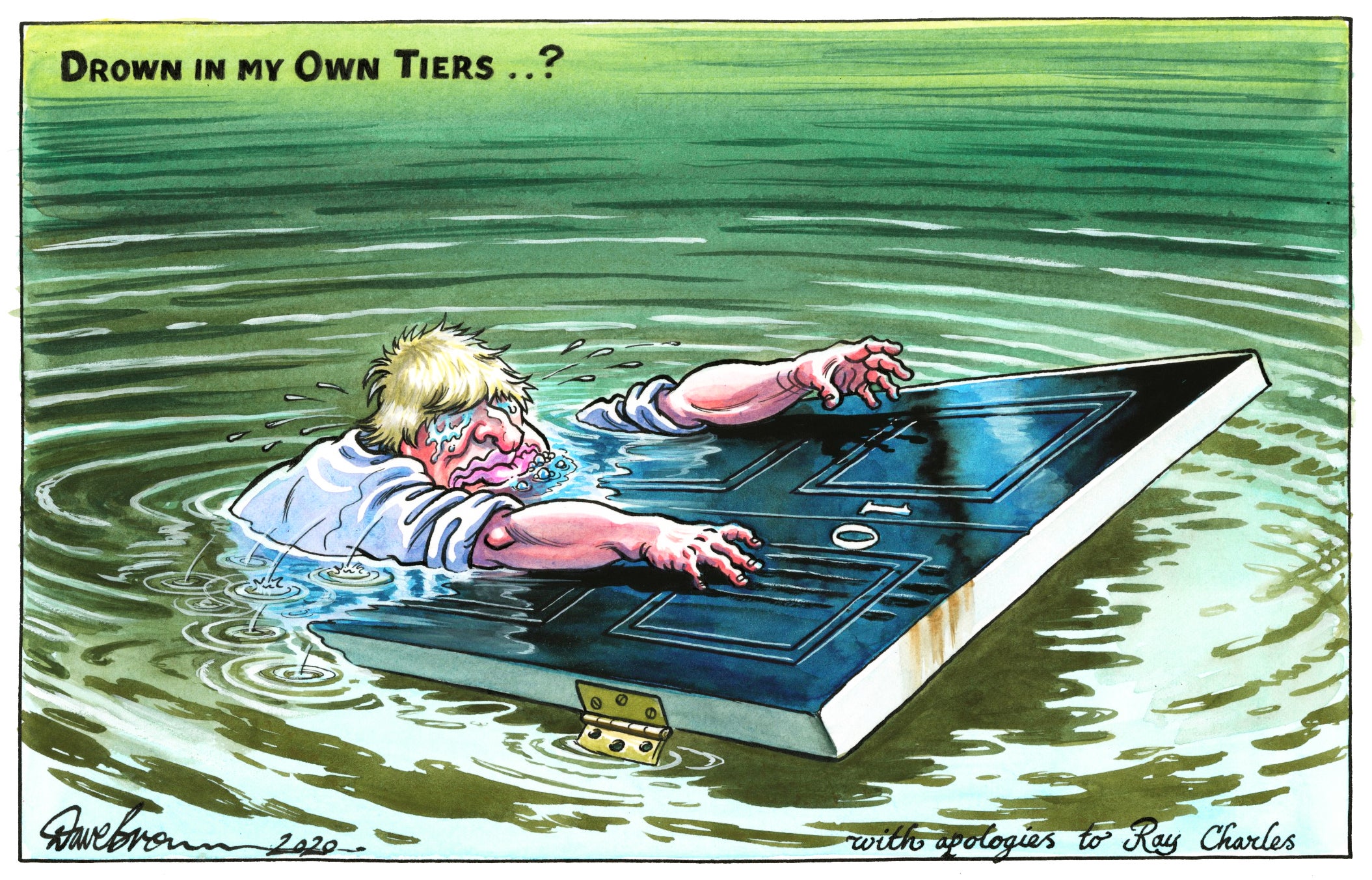Failure to agree an EU trade deal would be an unforgivable mistake
Editorial: However thin and unsatisfactory the likely deal might be, it is still substantially in the interest of both sides that it should be done

We make no apology for returning to the subject of Brexit, four and a half years after the referendum vote. We should not allow the repetitiveness of the debate to detract from the seriousness of the moment our departure from the European Union actually takes effect, in one month’s time.
The prime minister points out that the United Kingdom has already left the EU, and the legal fact of the end of our membership on 31 January 2020 is undoubtedly significant. But the main practical effects so far have been that ministers no longer attend EU meetings, British officials no longer staff the commission, and British members of the European parliament have been demobilised.
It is not until 1 January – or in many cases 2 January, the Saturday after the bank holiday – that the direct economic effects of leaving the European single market will be felt. It is remarkable that we still do not know what rules will govern trade between the UK and the EU on that day.
Most commentators are united in their conviction that the two sides will reach an agreement on a trade deal in the next few days. In part this is because of the rational observation that it would be self-defeating for either side – but more for the UK – to allow fish or state aid rules to scupper a deal. But we cannot assume that rationality will prevail.
The UK government has quietly admitted recently that any deal that might be done would not be “comprehensive”. It will not cover services, at considerable cost to the City of London. But a minimal deal that covers only goods is still valuable. Avoiding tariffs and quotas on trade between the UK and the EU is worth a significant amount. The independent Office for Budget Responsibility last week projected that national income next year would be 2 per cent lower if there is no deal.
As we have reported, the Organisation for Economic Cooperation and Development (OECD) has added its voice to this warning. Its latest six-monthly Economic Outlook says: “The failure to conclude a trade deal with the European Union by the end of 2020 would entail serious additional economic disturbances in the short term and have a strongly negative effect on trade, productivity and jobs in the longer term.”
This is in addition to the economic effect of coronavirus on the UK, which the OECD assesses as one of the biggest contractions among the rich countries. Indeed, the damage of a no-deal exit from the EU single market and customs union would be in addition to the underlying damage wrought by Brexit. Even if there is a trade deal in the next few days, Brexit will have an effect on our national prosperity by deterring inward investment and above all by making trade more difficult with our largest local market.
Looking back over the past decade and a half, the British economy was among those that suffered most from the financial crash; it was among those that suffered most from coronavirus; and it will also suffer inevitably from the decision of the British electorate in 2016 to put the idea of sovereignty above economic prosperity. It would be unpardonable folly to impose a further 2 per cent surcharge on those costs by failing to agree a trade deal that is already, we are told, 95 per cent complete.
We must hope that the prime minister sees clearly where his self-interest lies, if he will not see what is in the national interest; but we fear the worst.
Join our commenting forum
Join thought-provoking conversations, follow other Independent readers and see their replies
Comments


Bookmark popover
Removed from bookmarks